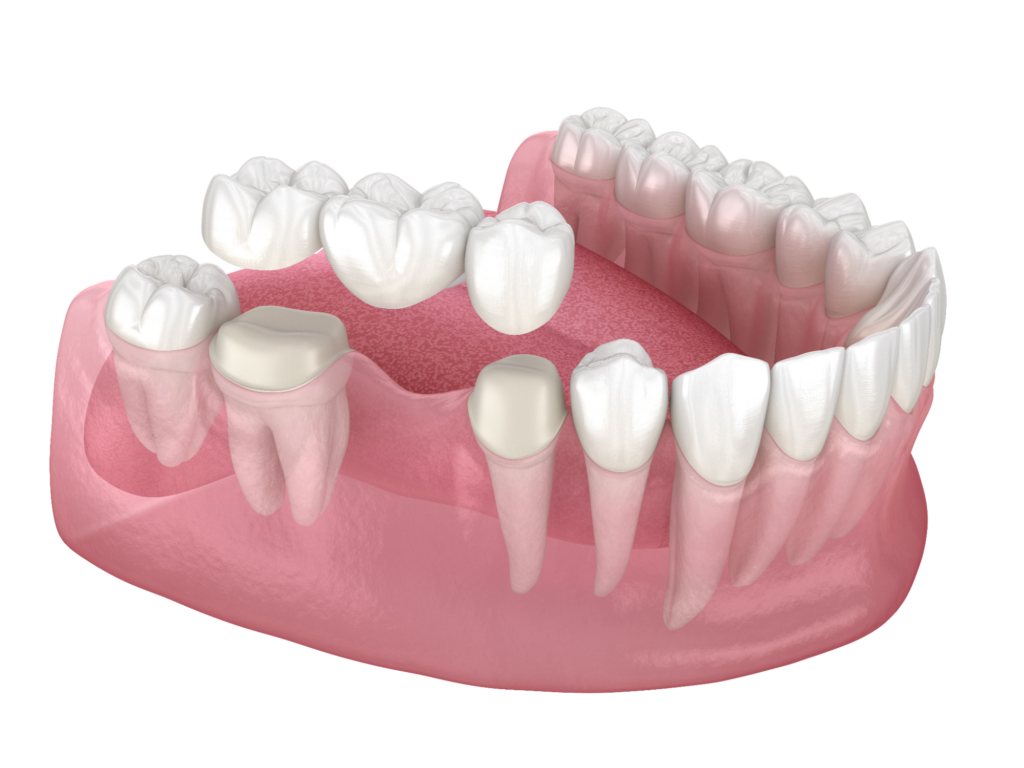Imagine a life without worry, where you can flash your radiant smile with joy, savour every bite without hesitation, and speak with unwavering clarity. If missing teeth have left you feeling uncomfortable or struggling with everyday tasks, dental implants may just be the life-changing solution you’ve been searching for. But, you may wonder, what does the journey entail? Is a dental implant painful? Read on as we explore the world of dental implants, debunk common misconceptions, and unveil the truth behind the transformative power of this remarkable dental procedure. Whether you’re on the fence or simply curious, get ready to embark on a fascinating journey toward a smile that’s as beautiful as it is functional. Brace yourself, because we’re about to change your perception of dental implants forever.
The Dental Implant Procedure
The average number of missing teeth among Australian adults is approximately 4.5, highlighting the widespread need for reliable tooth replacement options. As such, dental implants are fast becoming the go-to solution for those seeking a permanent and natural-looking replacement for missing teeth. With their remarkable success rates and ability to restore both aesthetics and functionality, dental implants are revolutionising the field of modern dentistry.
At The Dental Family Beaumaris, each step of our dental implant procedure is carefully tailored to deliver optimal results to not only enhance your smile but also improve your overall oral health. From the initial consultation to the final placement of your tooth restoration, our experienced team aims to provide you with a seamless and comfortable experience.
Step 1: Initial Consultation
Your journey towards a new smile begins with an initial consultation with our dental team. During this visit, your dentist will assess your oral health, examine the condition of your jawbone and remaining teeth, and discuss your goals and expectations. X-rays, 3D scans, or other imaging techniques may be used to create a comprehensive treatment plan tailored to your unique needs.
Step 2: Preparatory Procedures (if necessary)
In some cases, additional preparatory procedures may be required before the dental implant surgery. These procedures can include tooth extraction, bone grafting, or sinus augmentation. These steps ensure that the implant has a strong foundation for long-term success. A surgeon will be engaged in this part of the journey
Step 3: Implant Placement
Implant placement is the core procedure of the entire treatment. It is typically performed under local anaesthesia to ensure your comfort. Once the area is numb, your dentist will carefully create an incision in the gum tissue, exposing the underlying jawbone. A small hole is then drilled into the bone, where the titanium implant post is precisely inserted. This post serves as an artificial tooth root, providing a sturdy anchor for the replacement tooth or dental crown.
Step 4: Osseointegration
After the implant is placed, a process called osseointegration takes place. This is when the jawbone fuses with the implant, creating a strong and stable foundation. It usually takes a few months for the osseointegration process to complete, during which time you may be provided with a temporary restoration to maintain oral aesthetics and function.
Step 5: Abutment Placement
Once osseointegration is complete, an abutment is attached to the implant. The abutment acts as a connector between the implant and the final dental restoration. This minor procedure involves reopening the gum tissue to expose the implant, placing the abutment, and suturing the gum back in place. The abutment serves as the support structure for the final crown, bridge, or denture.
Step 6: Final Restoration
The final step in the dental implant procedure is the placement of the custom-made dental restoration about 8 weeks later. This could be a single crown for a single missing tooth or a bridge or denture for multiple missing teeth. The restoration is designed to blend seamlessly with your natural teeth in terms of appearance, shape, and function. Once placed, you’ll be able to enjoy a beautiful, fully functional smile.
Step 7: Post-Procedure Care
After the completion of the dental implant procedure, your dentist will provide you with specific instructions for post-operative care. This may include guidelines for oral hygiene, dietary restrictions, and follow-up appointments to monitor the healing process. It’s essential to follow these instructions diligently to ensure proper healing and the long-term success of your dental implants.
Is a Dental Implant Painful?
One of the most common concerns individuals have when considering dental implants is whether the procedure is painful. The good news is that dental implant surgery is typically performed under local anaesthesia, ensuring that you remain comfortable and pain-free throughout the process. The area around the implant site will be numbed, and you may also have the option of receiving sedation to help you relax further.
While you may experience some minor discomfort and swelling after the procedure, this can usually be managed effectively with over-the-counter pain medication. Most patients report that any discomfort they experience is well-tolerated and easily manageable. The long-term benefits of dental implants, including a restored smile and improved oral function, far outweigh any temporary discomfort during the implantation process. With proper care and under the compassionate guidance of our dental team, you can rest assured that they will take all necessary measures to make your dental implant journey as comfortable as possible.
When Do You Need Dental Implants?
Your oral health is a vital component of your overall well-being, and when specific dental issues arise, dental implants can make a remarkable difference, mimicking the natural structure and function of a tooth root. Let’s dive into some common scenarios where dental implants can be a viable solution, providing you with renewed assurance and the ability to live your life to the fullest.
Loose or missing teeth
Whether it’s due to tooth decay, trauma, or ageing, having loose or missing teeth can impact your ability to chew, speak clearly, and feel comfortable with your smile. Dental implants provide a sturdy and permanent solution, replacing the missing tooth root and restoring the appearance and function of your natural teeth.
Root fractures
When the root of a tooth is fractured or damaged, it can cause pain, sensitivity, and even tooth loss. Dental implants offer a reliable alternative to save your smile. By replacing the damaged tooth root with a biocompatible titanium implant, your new tooth will not only look natural but also function just like a healthy tooth.
Clenching or grinding your teeth
If you suffer from bruxism, or the habit of clenching or grinding your teeth, it can lead to worn-down teeth, jaw pain, and other complications. Dental implants can help to restore teeth that have been damaged by excessive grinding, providing a strong and durable replacement that can withstand the forces exerted during chewing.
Gum disease
Advanced gum disease can lead to tooth loss and deterioration of the jawbone. In such cases, dental implants can help rebuild your smile and prevent further bone loss. The implants are anchored directly into the jawbone, stimulating bone growth and preserving the integrity of your facial structure.
Facial injury
Accidents or facial injuries can result in the loss or severe damage to teeth. Dental implants offer a reliable solution to replace missing or broken teeth, helping restore your smile and ensuring that you can bite and chew properly.
No matter the cause, dental implants can be the answer to various dental challenges, offering a long-lasting and natural-looking solution to bring back your lost smile and oral functionality.
Factors That Can Affect Pain Levels and Tips for Recovery
When it comes to the level of discomfort experienced during and after a dental implant procedure, several factors come into play. Understanding these factors can help you set realistic expectations and prepare for a smoother recovery.
- The location of the dental implant in the mouth: Implants placed in the front of the mouth, such as incisors, generally involve less trauma and tend to cause minimal discomfort compared to those placed in the back molars, where there is often more surrounding tissue and bone involvement.
- The number of dental implants being placed: The number of dental implants being placed in a single procedure can affect the level of post-operative discomfort. Naturally, the more implants that are inserted, the greater the extent of the surgery, and subsequently, the higher the potential for discomfort during the recovery period.
- The patient’s pain tolerance level: Each individual has a unique pain tolerance level, which can influence the perception of pain during and after the dental implant procedure. Some individuals may experience minimal discomfort, while others may have a lower pain threshold and may require additional pain management techniques or medications.
- The experience and technique of the dentist performing the procedure: The skill, experience, and technique of the dental practitioner performing the procedure also plays a critical role in minimising post-operative discomfort.
At our Bayside dental practice, our dentists employ advanced techniques and a compassionate approach to your oral health, ensuring precise and minimally invasive implant placement for optimal healing and a successful outcome with your dental implants. As such, it is essential to follow your dentist’s aftercare instructions to facilitate a quick recovery and minimise the chances of potential complications. This typically includes proper oral hygiene practices, such as gentle brushing and flossing, as well as attending scheduled follow-up appointments for monitoring the healing process. In addition, avoiding smoking, maintaining a soft food diet, and using any prescribed pain medications as directed can all contribute to a smoother and more comfortable recovery period.
Start Your Journey Towards a Beautiful and Fuller Smile with The Dental Family Beaumaris
Apart from dental implants, we also offer a range of general, restorative and cosmetic dental treatments to help you achieve and maintain healthy teeth and gums and a pleasing smile for life. Whether you have missing teeth that are hindering you from living your life to its full potential or you want to enhance the appearance of your smile through teeth whitening or dental veneers, we’re here to help. Our dentists will assess your oral health and smile goals to help you decide the treatment option that works best for you. Book a consultation today and let us help you reclaim your beautiful smile.


